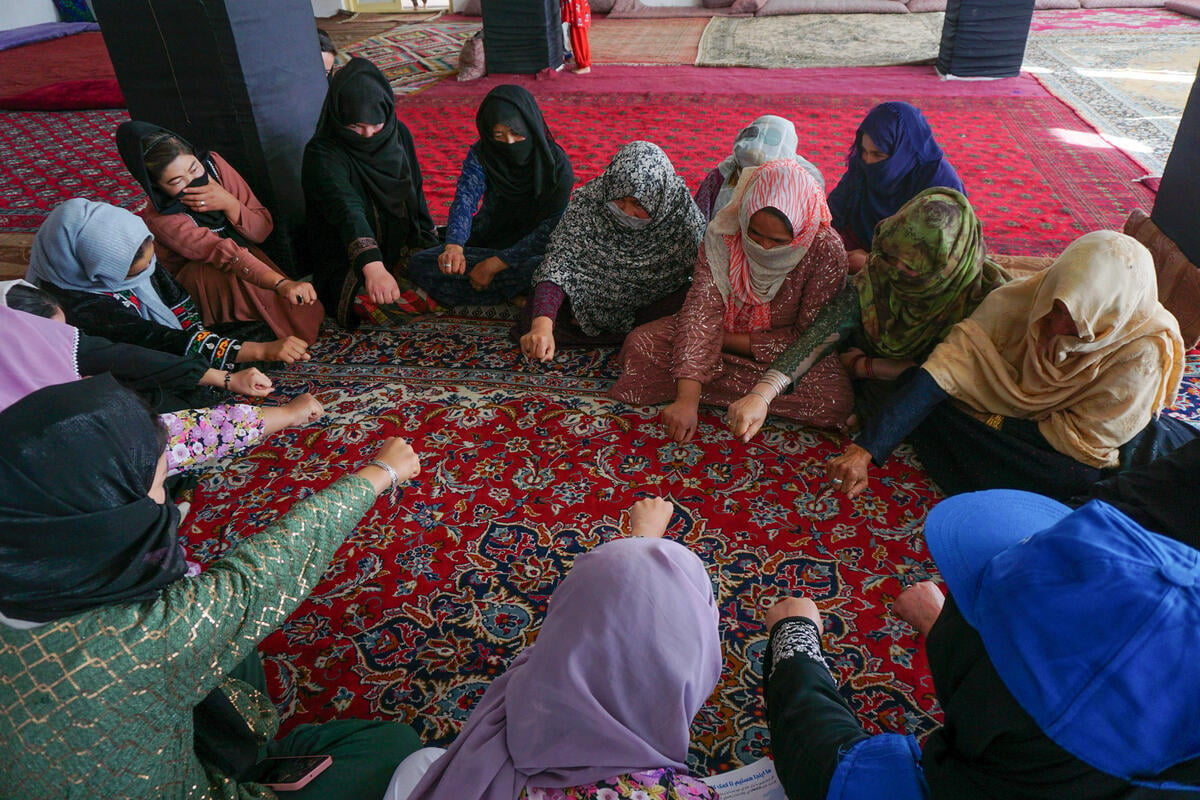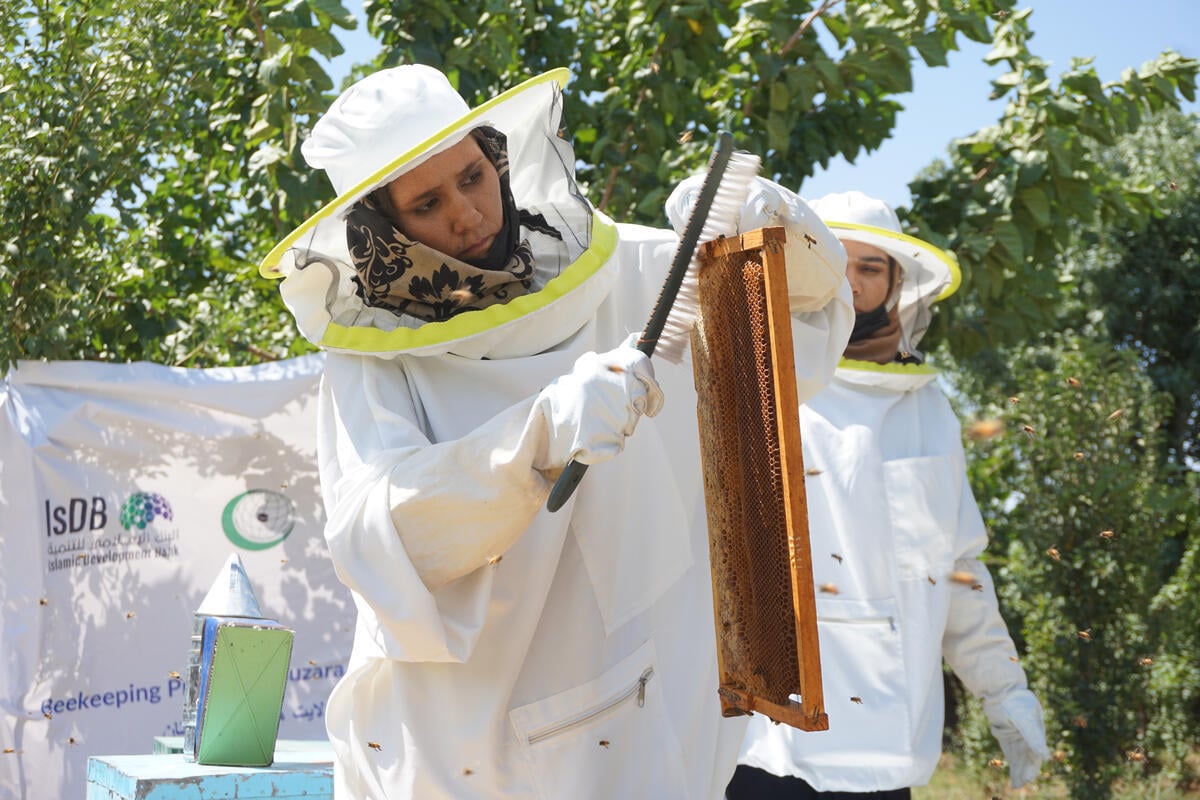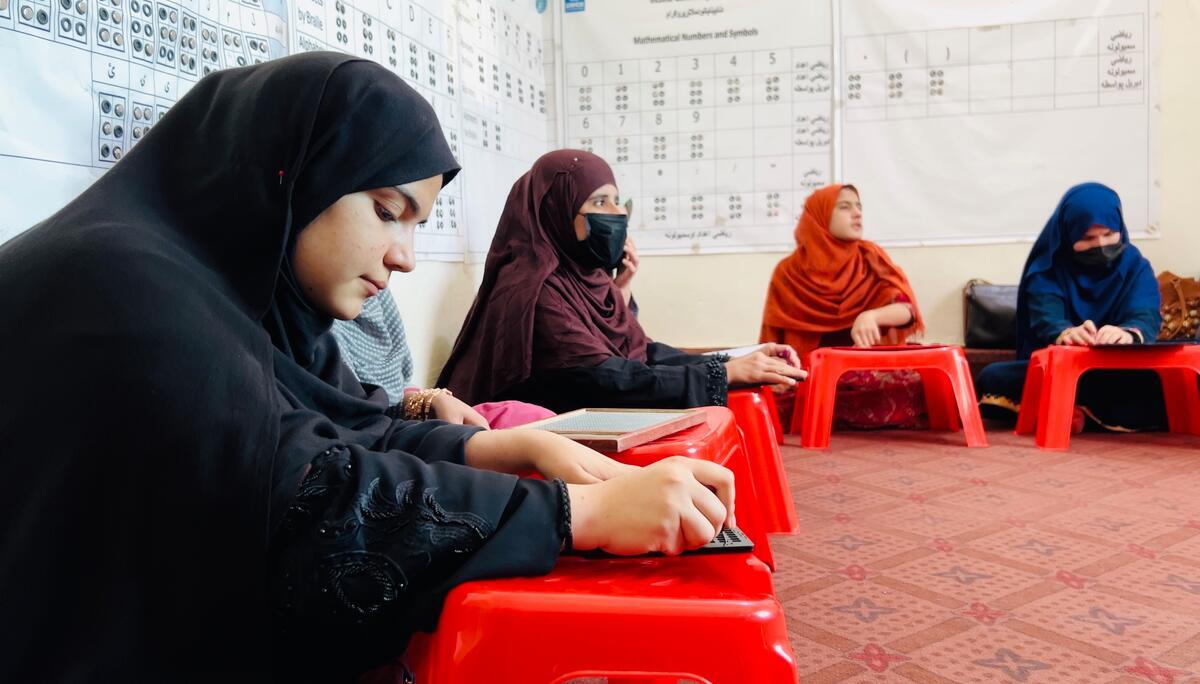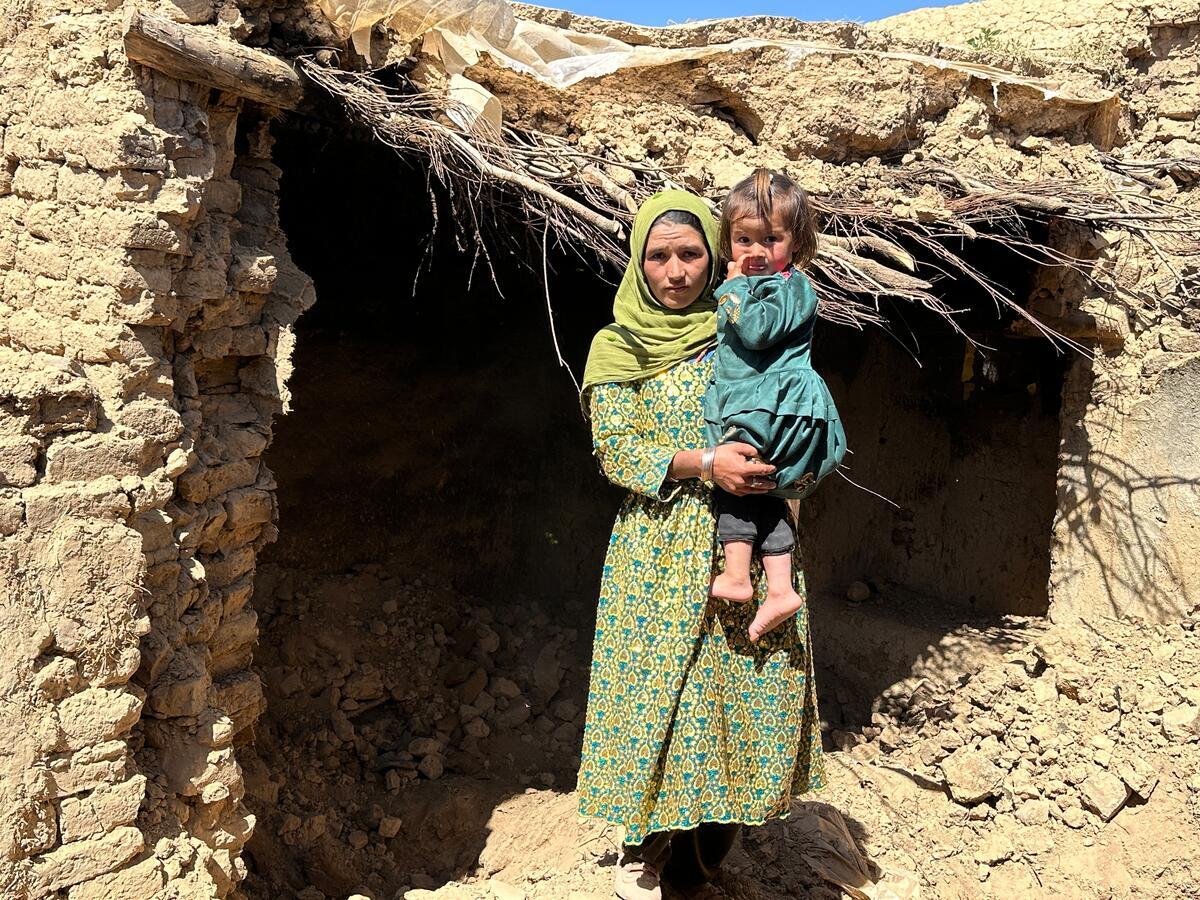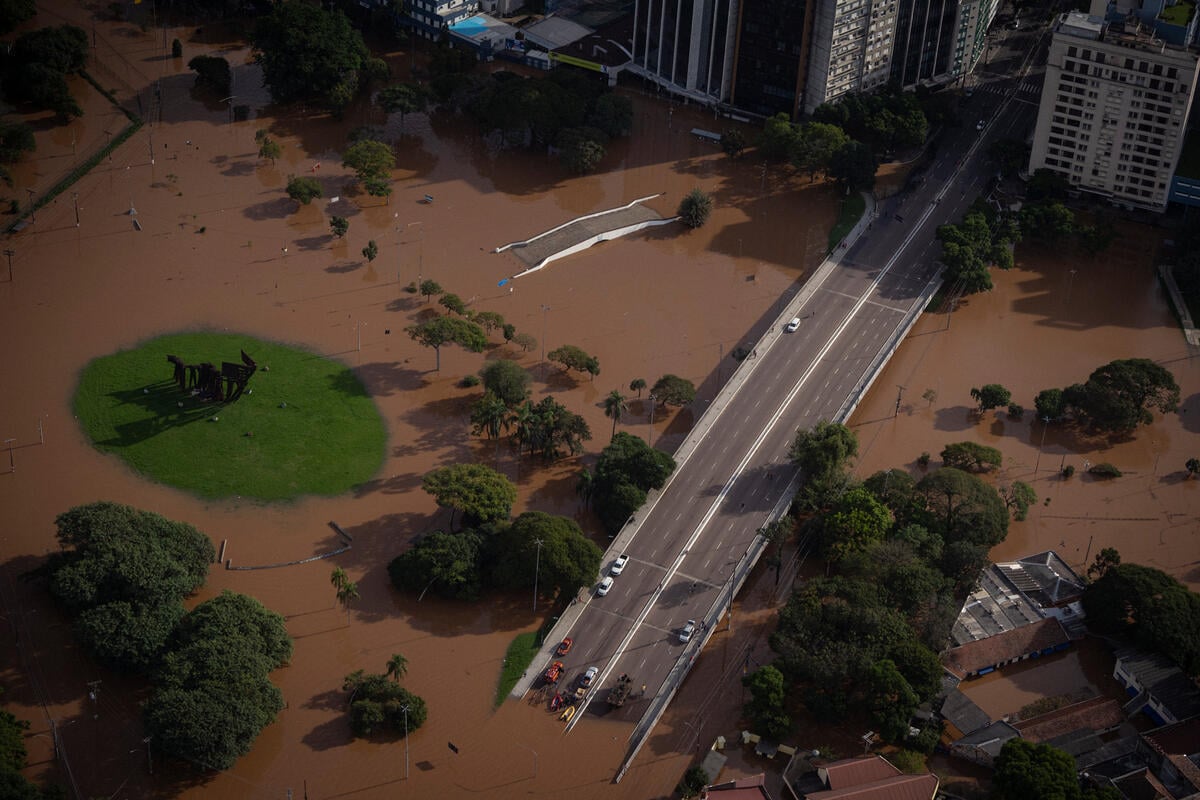First Afghans return home under new programme
First Afghans return home under new programme
PESHAWAR, Pakistan - UNHCR kicked off a programme to help Afghans return home today as some 150 refugees repatriated under an initiative to assist an expected increase in voluntary returns to Afghanistan with the arrival of spring and growing stability.
Friday's repatriation was the first UN-aided return movement to Afghanistan since 11 September 2001, when UNHCR suspended its assistance to Afghans heading home following the terrorist attacks in the USA and the suspension of most relief activities.
"The voluntary repatriation of these Afghans heralds a new beginning for Afghanistan, but also the beginning of the end of exile for many of the 3.5 million Afghan refugees under my care," said High Commissioner for Refugees Ruud Lubbers, who is currently touring refugee camps in Africa's Great Lakes region.
"Afghans who are willing to return home can now get the assistance they need," Lubbers said. "The international community must ensure that both the interim authority and the relief agencies working to help Afghanistan get back on its feet continue to receive the support these people require," Lubbers said.
The United Nations' humanitarian agencies launched an appeal in Kabul on Thursday for $1.18 billion to fund hundreds of reconstruction and redevelopment projects this year. Of that sum, UNHCR needs $271 million to get 1.2 million refugees and internally displaced persons home this year, help rehabilitate devastated communities, repair wells, and establish other vital projects throughout Afghanistan, as well as to care for millions of Afghans still in exile.
The refugees returning home on Friday hired their own transport and passed by the UN refugee agency's newly opened "Voluntary Repatriation Centre" at Takhtabaig just outside Peshawar, where they received documentation that will enable them to get a transport allowance of $20 per person or up to $100 per family on their arrival in Afghanistan. Once back in their home provinces, they will also receive various assistance items including blankets, tools, a plastic tarpaulin, a kitchen set and hygienic materials, as well as a three-month supply of food from the UN's World Food Programme.
The centre at Takhtabaig is the first of seven the UN refugee agency plans to set up in Pakistan to cope with an anticipated increase in the number of returnees this spring. Each centre will be able to process up to 5,000 persons a day. Similar facilities are being established in Iran.
Today's returnees - mainly recent arrivals since September 2001, but also one family that had been in exile for 22 years - were expected to be few in number as the UN gears up its information campaign. The UN refugee agency anticipates a surge in its facilitated returns from Monday, when the programme starts up in earnest.
UNHCR plans to assist some 1.2 million Afghans to return home this year. This includes aiding some 400,000 displaced persons still in Afghanistan whom UNHCR plans to help home, as well as another 400,000 each from both Pakistan and Iran. Pakistan shelters some 2 million Afghan refugees, while Iran shelters 1.5 million.
Since the beginning of the year, some 150,000 Afghans have gone back spontaneously to Afghanistan from neighbouring Pakistan and Iran despite the devastation of decades of civil war and three years of drought, an unstable security situation and a host of humanitarian problems.
The majority of the Afghans who repatriated under UNHCR's wing today were ethnic Pashtuns. This was despite the fact that in the past two months more than 50,000 Afghans mostly of Pashtun origin, but including nomads and other people in need of assistance, have arrived in southern Pakistan's Baluchistan Province. Some of the new arrivals have claimed persecution in some parts of the country as a reason for fleeing, which has raised UNHCR's concerns.
While Afghanistan has stabilized and humanitarian agencies are present in many areas of the country, the UN refugee agency believes that the security situation remains still too precarious for it to promote repatriation. Nevertheless, with thousands of Afghans spontaneously returning daily since the Taliban were toppled, UNHCR has decided to facilitate the return for those willing Afghans with a transport grant and an assistance package.


